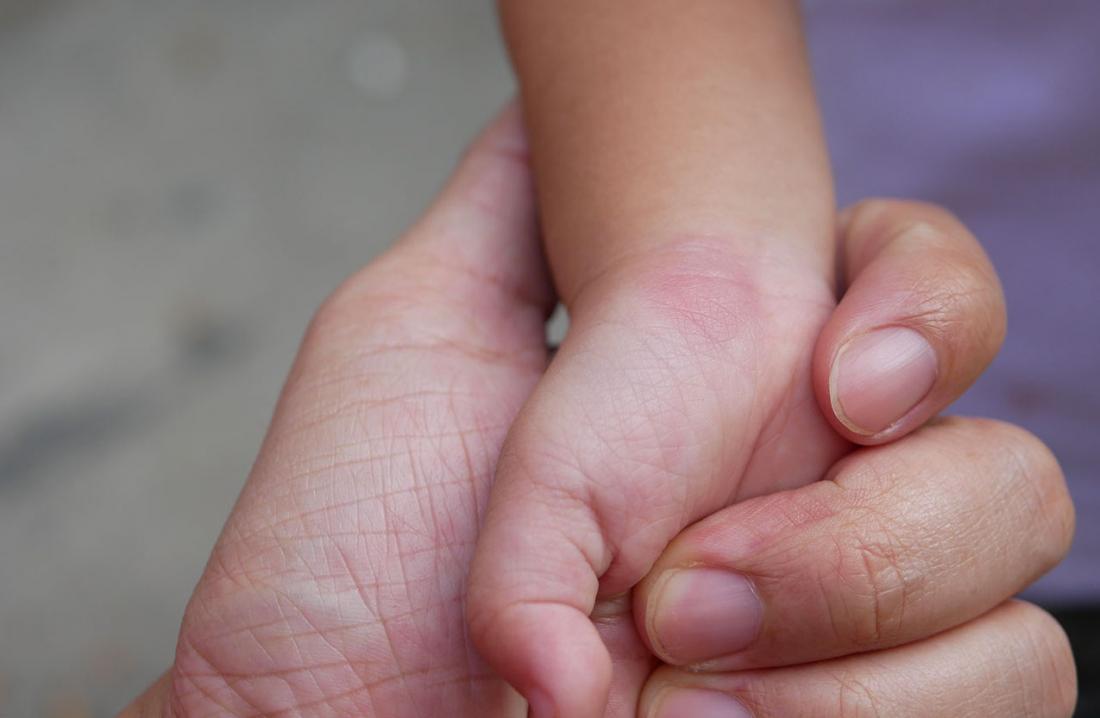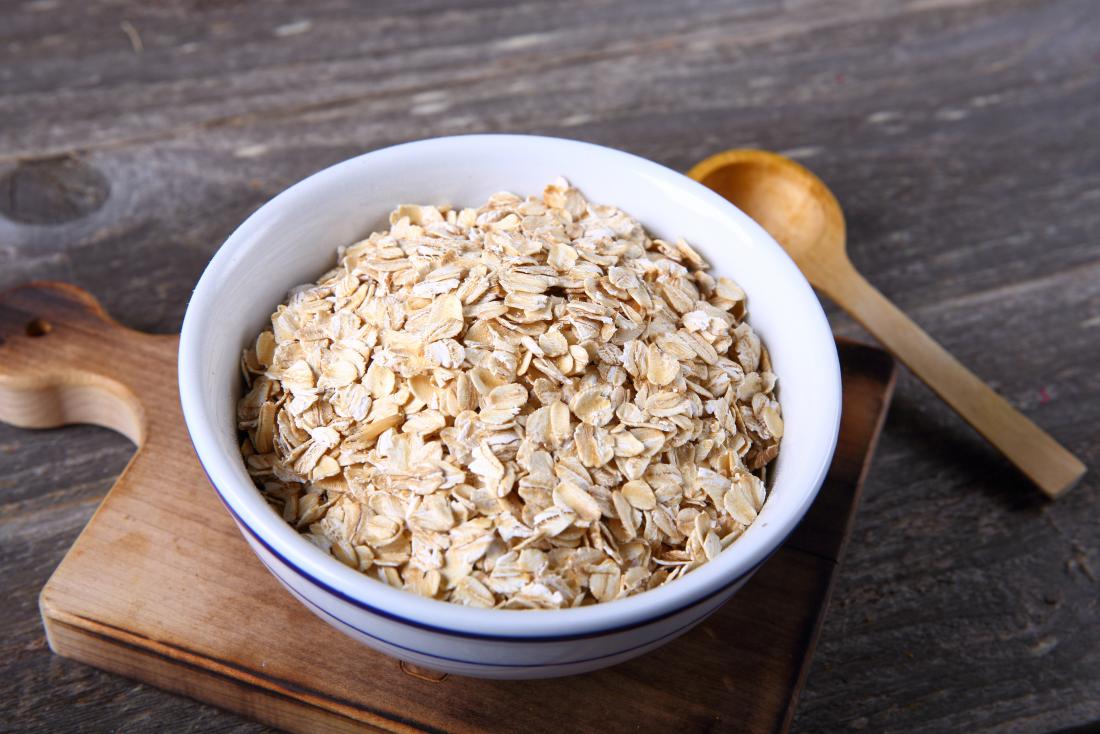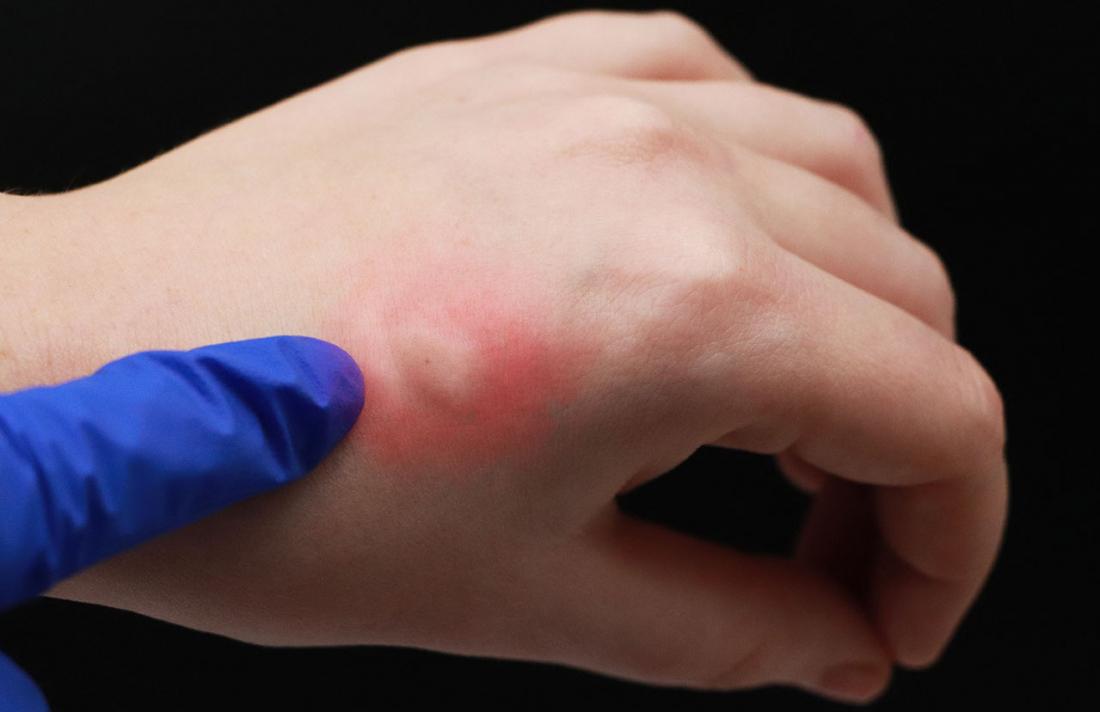The common symptoms of a mosquito bite include a small red bump and itching around the bite.
However, skeeter syndrome causes a person to experience more serious symptoms. The bites tend to swell up to a very large size, and the person may also have a fever. The reaction tends to build up quickly, usually within a few hours.
There are some home remedies that may help treat symptoms of skeeter syndrome. Medical procedures such as immunotherapy may also be an option for some people.
Prevention

Skeeter syndrome is a severe allergic reaction to a mosquito bite.
The best way to treat skeeter syndrome is to avoid bites as much as possible. This includes taking precautions each time a person goes outside, such as:
- wearing long sleeves and long pants to avoid skin exposure
- wearing a scarf or other garment to protect the neck
- carrying bug spray and applying it liberally
- trying other repellent measures, such as candles or bracelets containing citronella
- not wearing bright colors, which may attract mosquitos
- avoiding areas where there is standing water
- not using strong perfumes
People who have very severe reactions may wish to avoid going outside when mosquitos are most active, from dusk until dawn.
The American Academy of Allergy, Asthma & Immunology explain that DEET is an effective repellent, and that products with 6–25% DEET should be able to provide 2–6 hours of protection from mosquitos.
However, some products may cause skin reactions in some people. For this reason, it is always best to test skin products on a small area of skin before applying them to the rest of the body.
Treatments and home remedies
There are several treatment options for people with skeeter syndrome. These range from simple home remedies to more involved medical procedures.
Ice and elevation
For a bite that causes a reaction in one small area of the body, start with the simplest form of treatment.
Elevating the area and placing an ice pack on it may help reduce inflammation, soothe the sensations of pain and itchiness, and reduce redness.
Oatmeal

Applying oatmeal to the skin may help relieve the symptoms of skeeter syndrome.
Applying a mixture of cooked oatmeal to the area may also help reduce symptoms.
As a study in the Journal of Drugs in Dermatology found, oats have anti-inflammatory and antioxidant properties.
This might explain their beneficial effect on the skin.
Applying oats directly to the area or taking an oatmeal bath may help reduce itching and swelling and help a person find comfort.
Antihistamines
If a bite does not respond to simple home remedies, some over-the-counter (OTC) medications may help a person feel better much faster.
For instance, OTC antihistamines such as diphenhydramine (Benadryl) may help temporarily reduce itching and swelling.
Topical steroids
Some topical corticosteroid creams may also help temporarily soothe the reaction to a mosquito bite. OTC medications such as hydrocortisone (Cortaid) should be enough in most cases.
If a person knows that they have severe reactions to mosquito bites that do not respond well enough to these creams, their doctor may prescribe slightly stronger treatments.
Immunotherapy
Although the symptoms of skeeter syndrome are manageable for most people using OTC remedies, more serious cases may require medical treatment.
Allergen immunotherapy, or allergy shots, is a more permanent solution to severe allergic reactions from bug bites such as those from mosquitos.
Allergy shots work similarly to vaccines. An allergist will inject the person with very small amounts of a particular allergen. By increasing the amount of the allergen in each shot over time, immunotherapy may help the body build its own defenses against the allergy-causing proteins in mosquitos.
However, allergen immunotherapy takes time. The American Academy of Allergy, Asthma & Immunology note that it may take as long as 18 months or more for a person to notice an improvement in their symptoms.
Also, a person may need to continue having allergy shots for 3–5 years after successful treatment.
Causes
People with skeeter syndrome are allergic to the proteins in mosquito saliva. Although most people are allergic to these proteins to some degree, people with skeeter syndrome have a more severe reaction than others.
Some people may be more likely to experience skeeter syndrome, such as those who are allergic to stinging insects. People with weaker immune systems, such as young children and older adults, may also have a stronger reaction to mosquito bites.
Normally, the human body builds up immunity to certain allergens over time. Because of this, children may have more severe reactions to mosquito bites than adults, as their bodies have not had time to build this immunity yet.
How long it lasts

An allergic reaction to a mosquito bite will usually heal within a few days.
Allergic reactions from skeeter syndrome come on quickly, causing symptoms of skin irritation to appear within the first few hours. Skin symptoms include:
- inflammation
- swelling
- redness
- itching
- pain
- heat
A person may also occasionally experience a fever.
In children, these symptoms may appear in as little as 20 minutes, as a study in the Asian Pacific Journal of Allergy and Immunology found. This can be startling, but it is typically not a cause for serious concern unless the child shows signs of anaphylaxis. Anaphylaxis is a severe allergic reaction that can be fatal if a person does not receive immediate medical care.
Symptoms come on quickly, but they typically do not last very long. In general, if an infection does not occur in the area, the bite will heal and the symptoms will go away completely within a few days.
It is important to avoid scratching or dirtying the area as it heals. Severe reactions may be more prone to infection. Infected bites may turn to boils, which take longer to heal and have their own complications.
Regularly clean any bites gently with warm water and a hypoallergenic soap.
Skeeter syndrome and pregnancy
Pregnant women who experience skeeter syndrome during pregnancy should work directly with their doctor to find treatment options that will not affect their baby.
Although many topical or OTC options may be available, woman who are pregnant or breastfeeding should still discuss anything they plan on using with a doctor first.
When to see a doctor
When a person first has a stronger reaction to a mosquito bite, it is best to make an appointment with an allergist. They may help identify or confirm the allergy and may offer other helpful treatments moving forward.
Anyone who has a severe reaction to mosquito bites should consider seeking medical attention. Signs of anaphylaxis are very rare with mosquito bites but may still occur.
People who have difficulty breathing or symptoms such as wheezing or swelling in the face, throat, or mouth should seek emergency medical help.
Summary
Skeeter syndrome causes a significant allergic reaction to a mosquito bite. Although many people find that these symptoms are manageable using only home remedies, others may need specialized treatment.
Avoiding mosquito bites is the best way to prevent such reactions. There may be also some long-term treatment options available to help reduce a person’s reaction over time.
People with skeeter syndrome should work with their doctor or allergist to find a working solution to manage their symptoms.
